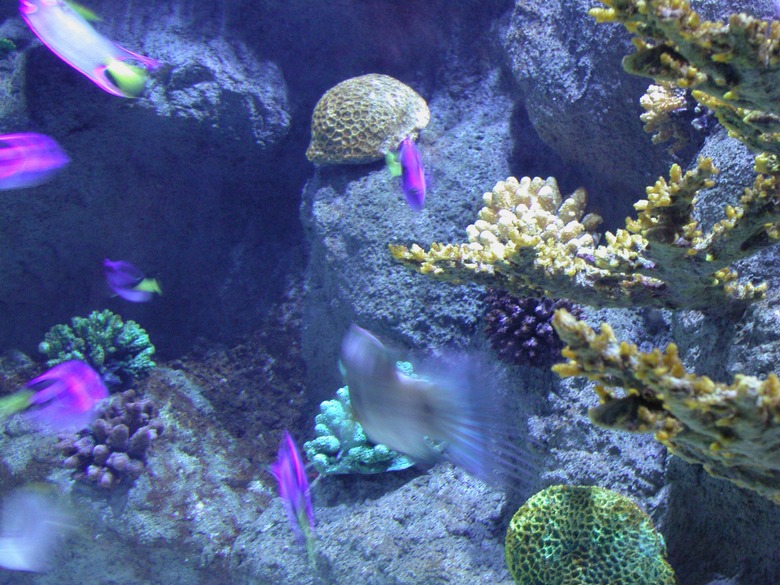Tiny Red Worms In A Freshwater Aquarium
Small red worms, also known as blood worms, are freshwater dwellers that can sometimes cultivate in a home aquarium, particularly if the filters are dirty and the water filtration is slow. While blood worms will not necessarily inflict any damage to the aquarium or its inhabitants , they may not be desirable for some aquarium owners.
About Blood Worms
About Blood Worms
Blood worms are not actually worms but the larval stage of a winged insect called a midge. These larvae usually live in stagnant or slow-moving fresh water, feeding on decaying plant and animal life. They are harvested in large numbers and marketed for tank owners because of how desirable their flavor is for most types of fish, even the pickiest eaters. The larvae are no longer than an inch before becoming an adult.
Aquarium Dwellers
Aquarium Dwellers
Owners will often notice blood worms in their aquariums for the first time after they've gone on vacation, leaving their tank lights off and not changing their filter as regularly as usual. Low light is appealing to blood worms, as are slow moving currents. As the flow decreases in a tank, a more desirable location is created for a midge to lay its eggs, which hatch within 48 hours, making them a quick cultivator. The worms will collect on the filter and gravel, feeding on any leftover food or dead plant life. Blood worms can also be transferred on live aquarium plants from tank to tank.
Benefits of Blood Worms
Benefits of Blood Worms
Because blood worms are appealing to many fish, a number of owners decide to leave them in their aquariums and let the situation correct itself over a few days. Blood worms are actually very healthy for fish; they're known to be a delicacy for tank dwellers. Odds are that the fish will eat the blood worms in a matter of days and that no more will appear once the filter has been changed and the tank has been cleaned.
Removing Blood Worms
Removing Blood Worms
If an owner wishes to rid the aquarium of blood worms sooner rather than later, they should change the water as they normally would. Next, the filter should be cleaned well and if possible, the flow of the filter should be increased. The faster moving the water is, the less likely a midge will lay more eggs. The gravel and any decorations inside the aquarium should should then be vacuumed well. Tank lights should be left on for the normal amount of time and fish should be fed sparingly to minimize any waste left at the bottom of the tank. This process should remove existing blood worms and prevent new ones from hatching.
